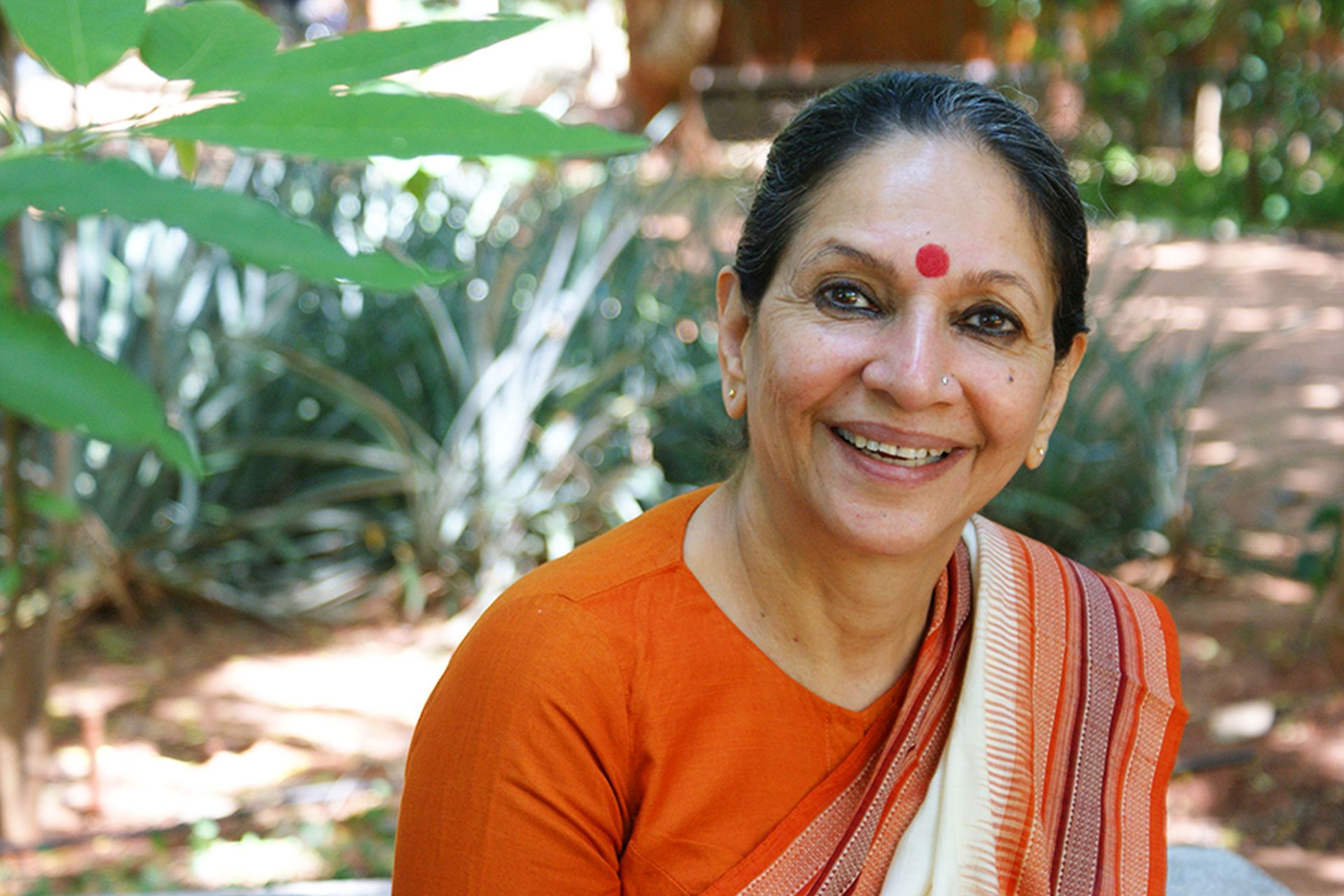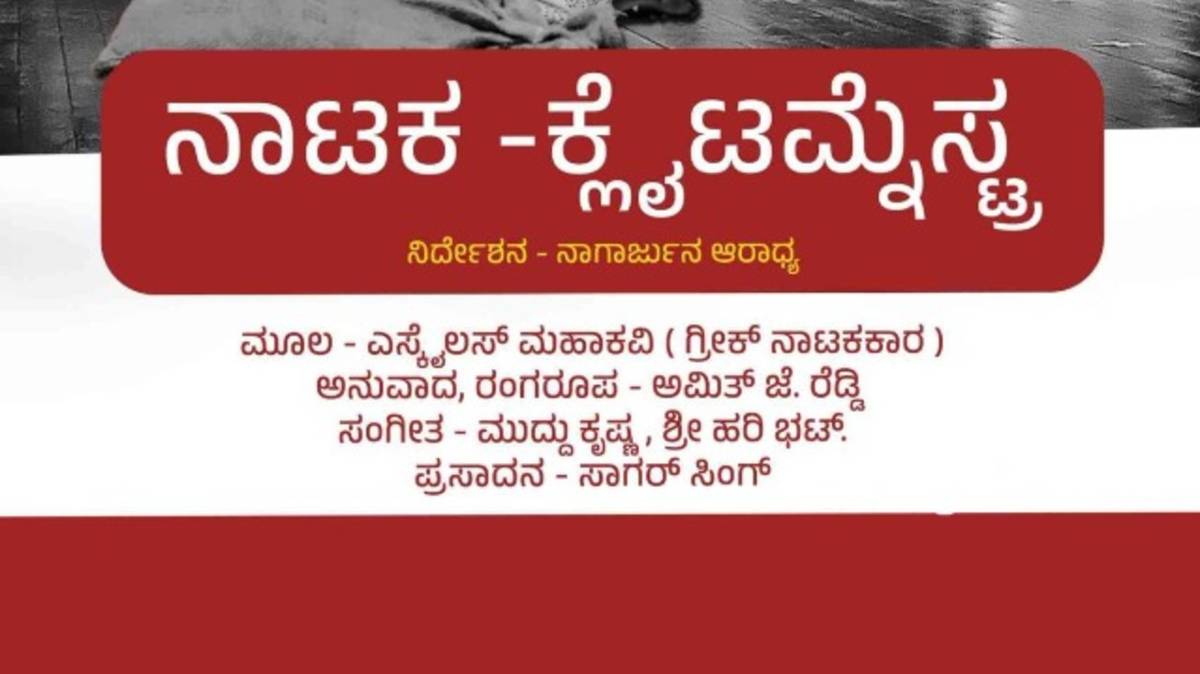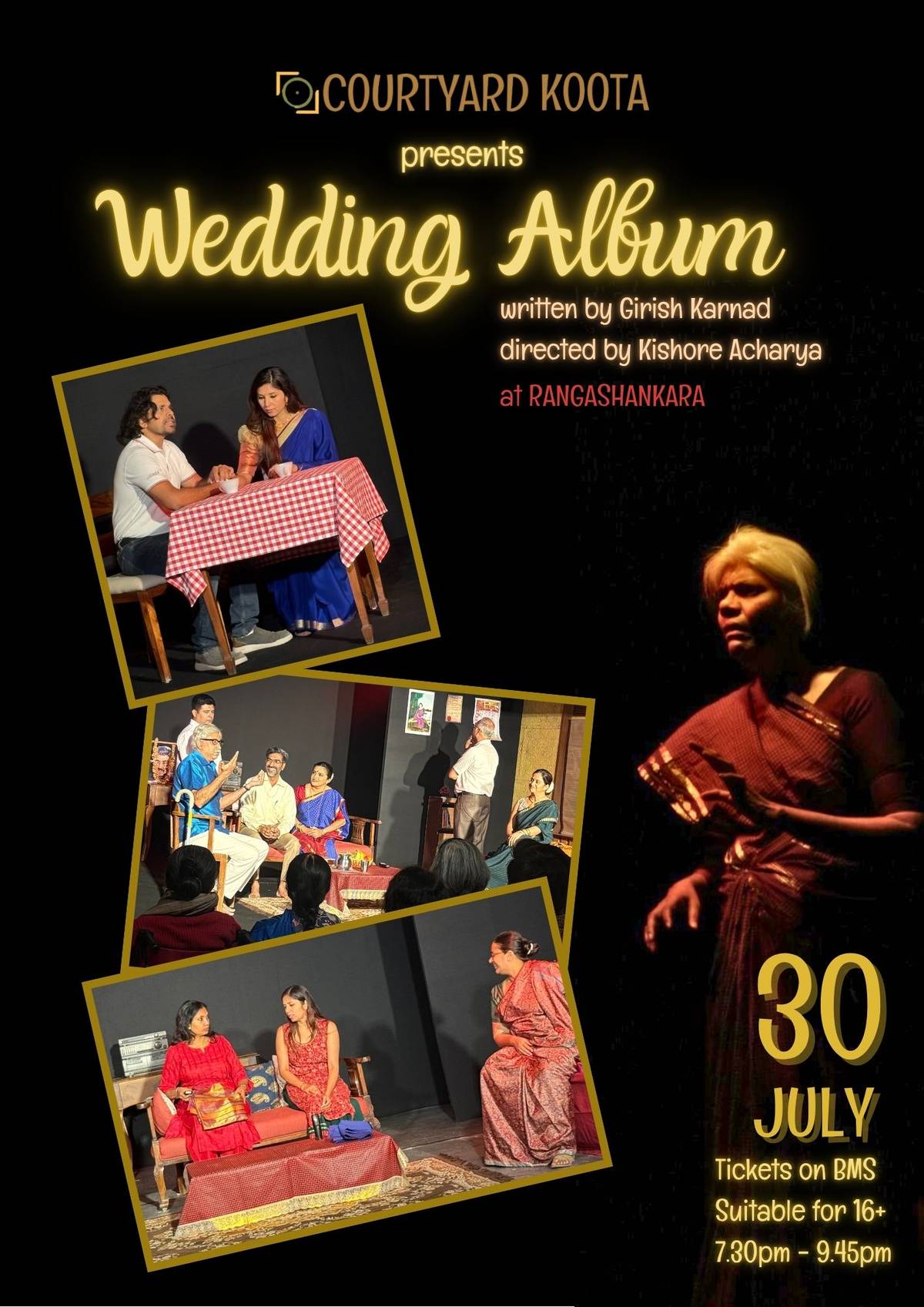Adishakti’s presents Ganapati (2000) & BRHANNALA{ 1999}
Your event is submitted for moderation. It will go live when approved.

Details
Dec 06 2019 to Dec 08 2019 3:30 p.m.
EVENT HAS ENDED
Where
Ranga Shankara
36/2, 8th Cross Rd, R K Colony, 2nd Phase, J. P. Nagar 560078
Event Description
The performance is an interpretation of the birth stories related to the myths of Ganapati { the elephant headed god from the Puranic cycle}/ Martanda from the Vedic cycle.
It is structured in a recurring cycle of creation, celebration, destruction and return, which parallel's the motif in these birth stories. The return is suggested by a re-telling of the myth repeatedly and from different points of view.
The aim is to allow its main concern, that of creations and creativity, to be interpreted at a variety of different levels.
The performance suggests its concerns largely through different patterns and textures of rhythms. The verbal text is minimal. And both the verbal text and the aural images are supported by visual cues and images. The rhythms used in this piece have been evolved from the rhythms of Koodiyattam music and folk rhythms from various parts of South Asia.
Brhannala & Arjuna in the Mahabharata
{Background to the Performance}
The story of the Mahabharata is woven around the conflict between five brothers, the Pandavas, and their hundred cousins, the Kauravas. Both want to rule the same kingdom; and this is resolved with the great war of Kurukshetra, in which all are killed except these five essential heroes of the epic.
But Arjuna is the preeminent hero. For all the outstanding actions of the story: wife winning, decisive victory in the war, engendering the royal succession; were performed by him. Even in childhood it is Arjuna who stands out by virtue of being the most skillful archer; having the ability of total concentration upon his target, to the exclusion of all his surroundings. And he becomes the favorite of his teacher Drona, an intellectual who takes to warfare for political and personal reasons.
Another aspect of the Indian hero, which Arjuna embodies, is that he is capable of great ascetic feats. And these are at the root of his power. During the course of his exile Arjuna goes as an ascetic to the Himalayas to prepare for the Great War of Kurukshetra. As a consequence he meets Siva - the lord of Time and of Destruction- who, pleased with Arjuna’s arduous penance, gives him the dreaded weapon ---Pasupata .
In an astounding act of self-control, astounding for one who was reputed for his propensities for relationships with women, he rejects the advances of a celestial dancer, doing what even great seers and mystics had failed to do before him. Thus though a warrior {feminine} he outdoes the Brahmin intellectual {male} in cerebral power and self-control.
An episode, which adds to the complexity of Arjuna’s personality, is when he learns to dance, sing and play instruments during a visit to heaven. And in the thirteenth year of exile, Arjuna the great warrior hero becomes Brhannala. She teaches the ladies of the court to sing and dance; tells them stories and acts as friend and playmate to the king’s children; till the war breaks out {the Goharan} and he goes back to his functions as a warrior.
The Indian hero is a figure of positive and effective action in support of dharma. “Dharma means literally that which one lays hold of and which holds things together, the law, the norm, the rule of nature, action and life.”- Sri Aurobindo. And although it is his elder brother Yudhishtra who was known as the son of Dharma and therefore its incarnation, it is Arjuna who actively supports and upholds it in his warrior aspect through out the course of the epic.
The poignancy of Arjuna’s dilemma at the battlefield of Kurukshetra, when he refuses to fight, has to be understood in this context. For this hero of dharma faces a moral revolt against the very action and its standards which he was satisfied with and which he had earlier upheld. He has no alternative to that now; and no moral standing ground left, nothing to lay hold of and walk by, no dharma.
The war raises many issues, which touch the human half of Arjuna’s semi divine heroism. And with the meaningless and tragic death of his son Abhimanyu his depression over its moral ambiguity deepens. And he is paralyzed with grief.
Ultimately it is this human half of him which redeems Arjuna. For Arjuna is Nara: essential man / the man moving towards godhead, who is complete only with Narayana/ Krishna Vasudeva, the man whom God became. And it is only when he fails as a hero and has no yardstick to act by as a man that he looks beyond for a meaning in his life. From failed hero and failed human then he moves through Krishna Vasudeva towards his goal as Nara-Narayana.

